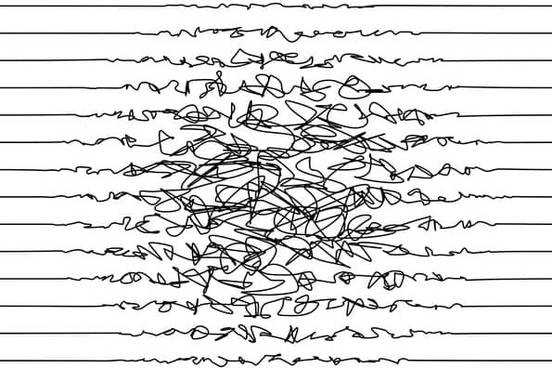
Illegible & Unreadable
In one important way both of these words mean the same thing; they both carry the meaning of “not legible; indecipherable.” However, unreadable has a wider semantic breadth, and can also mean “impossible to interpret” or “not enjoyable or interesting enough to engage the reader.” A face that is devoid of expression might be said to be unreadable, as would a book that truly stinks. In neither of these cases would you typically use the word illegible.

Disinterested & Uninterested
Once upon a time, when these two words first came into use in English, disinterested had the meaning of “lacking interest,” and uninterested meant “unbiased.” Somewhere along the way the words decided to swap meanings, and a number of people decided that using them in their original senses was A Very Bad Thing To Do. The meaning of uninterested today is fairly set as “not interested; not having the mind or feelings engaged.” Disinterested is most often used to mean “unbiased.” It is also still used by many people to mean “not interested,” a use that is frowned upon by usage guides.

Inflammable & Nonflammable
In- often functions as a negative prefix, carrying the meaning of “not” when found at the beginnng of words such as inconclusive and inarticulate. However, in the case of inflammable the prefix means “in” or “into” (the word comes from the Latin inflammare, "to inflame”). Inflammable can mean either “flammable” (“capable of being easily ignited and of burning quickly”) or “ easily inflamed, excited, or angered.” Nonflammable, on the other hand, means “not flammable; specifically, not easily ignited and not burning rapidly if ignited.”

Inept & Inapt
Inept and inapt may both be traced to the Latin aptus (“apt”), but since their adoption in English they have moved away from each other, semantically and orthographically. Inept is “generally bungling” or “ lacking in fitness or aptitude"; unapt is “inappropriate” or “not accustomed and not likely.” Both words may have the meaning of “inappropriate,” but when inept is used in this sense the precise meaning is “not suitable to the time, place, or occasion; inappropriate often to an absurd degree.”

Incomparable & Noncomparable
These words are entirely synonymous in one sense, which is the one meaning “not suitable for comparison.” However, incomparable has an additional meaning, which is “eminent beyond comparison; matchless.” If you are speaking of data sets that cannot be matched they are noncomparable or incomparable. If you are referring to a scene of natural beauty, the likes of which you have never seen before and that you will forever have indelibly etched in your memory then the word is only incomparable.

Immoral & Amoral & Unmoral
All three of these words function by putting a negative prefix on the word moral. Of the three immoral is the most purely antonymous of moral, meaning “conflicting with generally or traditionally held moral principles.” This word may describe a person who knows the difference between right and wrong, and deliberately chooses the wrong. Amoral can mean “wrong,” or “being outside or beyond the moral order or a particular code of morals,” but can also exist in between moral and its antonym, with the meaning “being neither moral nor immoral.” Unmoral can mean "having no moral perception or quality" or "not influenced or guided by moral considerations,” and is often used for things (and people) incapable of understanding right and wrong.

Displace & Misplace
Displace carries meanings such as “to move physically out of position,” or “to remove from the usual or proper place.” This latter sense has the specific meaning of “to expel or force to flee from home or homeland,” as in “displaced persons.” Misplace, on the other hand, means “to put in a wrong or inappropriate place,” or “mislay.” People are displaced when their country is invaded; keys are misplaced when you put them somewhere new and don’t remember.

Disused & Unused
As with a number of the words on this list one of this pair has a fairly narrow meaning (disused), while the other has a broad range (unused). Disused is defined as “abandoned; no longer used or occupied.” Two of the senses of unused have close to an opposite meaning (“not used” and “fresh, new”). Unused may also mean “not habituated” (‘he was unused to working in an office’), “not put to use” (‘unused land’), or “accrued; not consumed” (‘an employee’s unused sick days can be used the next year’).

Insensible & Nonsensical
Insensible has a variety of meanings, most of which are concerned with the lack of some sensory ability or state. It may mean “unconscious,” “unaware,” “lacking sensory perception or ability to react,” or “lacking delicacy or refinement.” Nonsensical is more concerned with nonsense, defined as “being nonsense or full of nonsense” or “characterized by or revealing absurd or foolish speech, thoughts, or acts.” If you have been knocked out, or are unable to feel anything, you are insensible. If you start stringing together words in meaningless order you are being nonsensical.





